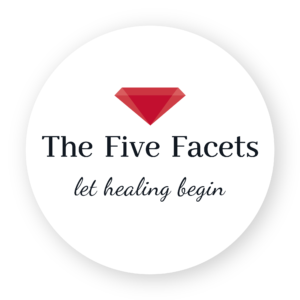Every day, loss and healing occur all around us.
My eighteen-year-old son is currently experiencing loss in the form of a break-up with his girlfriend of two years.
On a grander, more serious scale, hundreds, if not thousands, are entering the journey from loss to healing after the recent tragedies in West Virginia and Iceland.
With the volcanic eruption, some of the losses were little more than frustrating inconvenience: delayed trips, missed business meetings, rerouted traffic.
And yet, I would surmise some were on their way to funerals and weddings and births… and then there are those who experienced the loss of land, loss of home, loss of income…
In addition to these two events that made national and international headlines, there are countless others who are facing destruction, despair, and death in their lives.
Victims’ families, survivors, and those inflicted with pain are entering The Five Facets of loss and healing, the road to understanding, acceptance, and peace.
There will be no rhyme or reason to how each individual will traverse the distance from agony to acceptance, from frustration to forgiveness, from hurt to healing.
Each will weave in and out of Elisabeth Kubler-Ross’ five stages of grief: denial, anger, bargaining, depression, and acceptance.
And through this process most will ask those eternal questions: What? When? Where? Why? Who? How?
What is happening to me? When will I feel better? Where do I go from here? Why did this happen? Who can help me? How long before I feel better?
We as a society will step up and attempt to provide answers to those questions.
We have an arsenal of quotes, clichés, and platitudes at the ready:
“Everything happens for a reason.”
“God has a plan.” “When one door closes, another one opens,” or “When God closes a door, he opens a window.”
“Fall down seven times, get up eight.”
“Don’t sweat the small stuff.”
“Time heals all wounds.”
And then there is the barrage of inspirational messages found in many books, on calendars and billboards and in daily language: “It’s a miracle!” “We all prayed!” “Our prayers were answered.” “Today is a gift, that’s why they call it the present.”
When we are in the throes of despair, these responses will often bring about frustration and additional questions.
What is the purpose/reason/meaning?
Why is this happening to me?
When will Ifeel happy?
Who calls suffering a gift?
Where is mymiracle?
How muchtime?
What I have learned is this: In your time you will assemble the answers that will become your own meaning, suit your needs, fit into your life, meld with your beliefs and into your life.
Too often, however, we box ourselves into niche groups: child loss, cancer, suicide, divorce, limb loss…
Though each area does have its own language, per se, its own set of challenges and solutions, pain is pain and in our suffering we are faced with similar emotions, thoughts, and obstacles.
Networking with others who share similar trials, regardless of the type of loss, can lead us to helpful resolutions.
It is important to note, however, that we will often find useful tips from other areas outside of our “circle.” Don’t be afraid to branch out, regardless of the topic, be it academic, spiritual, social, physical, or emotional.
Try different things if what you know or have been doing doesn’t seem to be helping. If one particular ideology from a faith other than yours makes sense to you, makes you feel better, then use it.
Try different physical activities to see if one in particular helps energize you, connect with different groups, read different materials.
Much like the slogan, “Have it your way,” I say, “Heal it your way.”
If you don’t like pickles and God is a pickle to you, then don’t put God on your bun.
No one is exempt from suffering but everyone is entitled to healing. Assemble the pieces that work for you.
And remember that as we grow and mature and experience new things, our likes and dislikes and tastes often change.
Regardless of what your pickle might be, in a week or a month or a year, you may discover that marinated cucumbers are now agreeable.
Soon…

2 Comments on “Heal It Your Way”
Our society is quite happy to welcome the good times but the bad times, not so much. And yet both are part of life. Suffering, whether we like it or not, is how we grow as humans. Like your writing.
Wooliesocks,
Thanks for your positive and kind thoughts. One of my many mantras is this: “As individuals, we do not grow during good times. Strife challenges us, stretches us, teaches us, and that is when we learn.” I wonder if my children have that quote memorized yet!